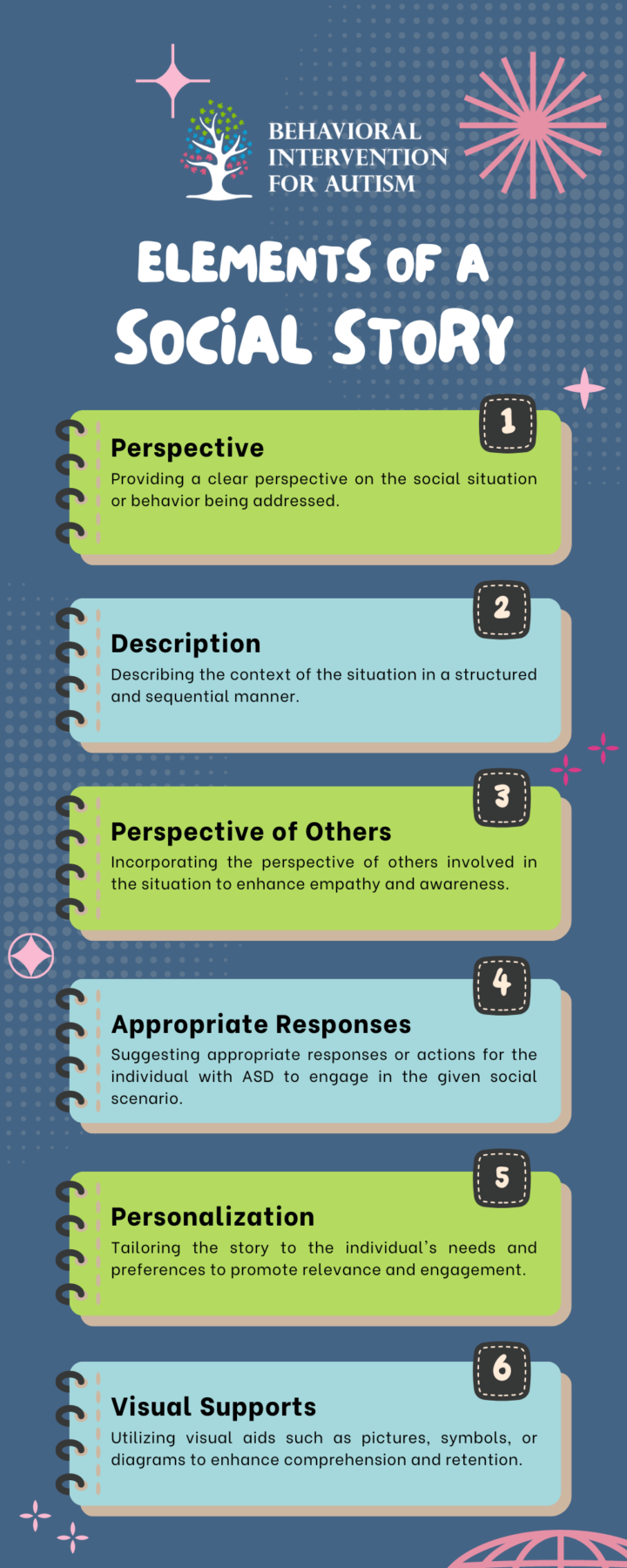
Table of Contents
Delving into the realm of social stories, it is essential to grasp their significance in aiding individuals with autism in navigating social situations effectively.
Introduction to Social Stories
Social stories, developed in 1991, have emerged as a crucial tool for individuals on the autism spectrum, helping them comprehend social cues and interactions more clearly. These stories are customized narratives that present social situations in a structured and understandable manner, tailored to the individual’s needs and abilities.
Importance of Social Stories
Social stories play a pivotal role in the lives of individuals with autism, irrespective of their age, as evidenced by research and practical experience. These stories offer a structured approach to teach social norms, behavioral expectations, and appropriate communication skills. By breaking down complex social scenarios into manageable parts, social stories empower individuals with autism to navigate real-life situations with confidence and competence.
Research studies, such as the 2015 study involving 30 children with autism, have highlighted the positive impact of social stories on social skills development. The findings revealed that half of the children who underwent social story training exhibited enhanced social interaction abilities, underscoring the effectiveness of this intervention in improving social behaviors among individuals with autism.
In order to gain further insights on crafting effective social stories tailored to individuals with autism, resources like the Autism Parenting Magazine offer valuable guidance and tips on the creation and implementation of social stories in educational and home settings.

Development and Methodology
Exploring the roots of social stories unveils their significance in supporting individuals with autism spectrum disorder (ASD). The history of social stories traces back to their inception and evolution over the years, alongside the fundamental elements that constitute an effective social story.
History of Social Stories
The concept of social stories was pioneered by Carol Gray, a renowned teacher and consultant, in 1990. With a deep understanding of the challenges faced by her autistic students, Gray crafted social stories to aid them in navigating various social situations encountered in school. Noteworthy is Gray’s substantial impact on the field of autism, as she patented a system and approach for social stories and holds the trademark for the term.
Dr. Carol Gray, a child pediatrician, laid the groundwork for social stories in the early 1990s while working with autistic children. Her dedication to enhancing the social and communication skills of individuals with ASD led to the creation of these narrative tools. Since 1993, Dr. Gray has authored several books on social stories, cementing their role in promoting social understanding and interaction for individuals on the autism spectrum.
Elements of a Social Story
A well-crafted social story comprises specific elements essential for its efficacy in aiding individuals with autism in understanding and responding to social cues appropriately. These elements typically include:

These elements collectively contribute to the effectiveness of social stories in facilitating social skills development, behavior corrections, and overall skill enhancement for individuals with autism. The structured approach of social stories assists in fostering a deeper understanding of social norms and communication, empowering individuals with ASD to navigate daily interactions with confidence and clarity.
Application of Social Stories
Social stories are versatile tools that can be effectively utilized in various environments to support individuals with autism in understanding social cues and appropriate behaviors. They are considered a low-cost and caregiver-friendly technique that has shown effectiveness for some autistic individuals in managing emotions and behaviors. While not a one-size-fits-all solution, social stories can be valuable resources when tailored to the individual’s needs.
Using Social Stories in Schools
In the school setting, social stories play a vital role in helping students with autism navigate social interactions, classroom expectations, and transitions. Teachers and special educators can incorporate social stories into lesson plans to address specific behaviors or challenges that students may encounter. By creating personalized social narratives, educators can provide students with clear guidelines on how to act in various social situations, fostering independence and promoting positive social interactions within the school community.
Area of Application | Benefits |
Social Interactions | Improves social communication and peer interactions |
Classroom Behavior | Helps in understanding and following classroom rules |
Transitions | Eases transitions between activities and settings |
Incorporating Social Stories at Home
At home, parents and caregivers can use social stories to support their child with autism in developing essential life skills and managing daily routines. Social stories can cover a wide range of topics, from basic hygiene practices to handling emotions and engaging in family activities. By creating personalized social stories tailored to the child’s specific needs and interests, parents can help their child navigate challenging situations and build confidence in social settings.
Area of Application | Benefits |
Daily Routines | Establishes predictability and structure in daily activities |
Emotional Regulation | Helps in identifying and expressing feelings appropriately |
Skill Development | Supports the acquisition of new skills and behaviors |
By employing social stories in both educational and home settings, individuals with autism can enhance their social awareness, improve behavioral responses, and cultivate valuable life skills essential for their overall development and well-being.
Social stories are a valuable tool for individuals with autism, helping them understand social situations and appropriate responses. These narratives break down complex interactions into manageable steps, making it easier for individuals to navigate their environments.
Incorporating ABA programs in Florida, our team at Behavioral Intervention for Autism crafts personalized social stories tailored to each individual’s unique experiences and needs. Our dedicated professionals are committed to providing high-quality, evidence-based interventions that empower individuals with autism to improve their social skills and confidence. If you’re interested in learning more about how we can assist you or your loved ones, feel free to reach out to us today!
- 9 Common Obsessions of Children With Autism You Should Know - February 25, 2025
- What is Neurodiversity? A Guide to Embracing Differences - February 25, 2025
- Understanding Hyperfocus in Autism: What It Means and Why It Happens - February 25, 2025
